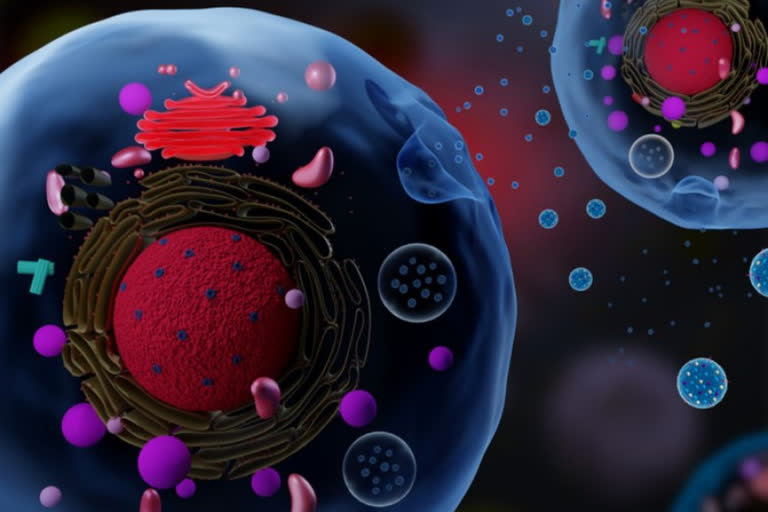Hyderabad: Nano-sized membrane bubbles known as extracellular vesicles activate the immune system in mice and seem to render their tumours sensitive to a type of immunotherapy drug called a checkpoint inhibitor. This is according to a new study published in Cancer Immunology Research by researchers at Karolinska Institutet. Treatments for various forms of cancer have improved considerably over recent years thanks to a type of drug called a checkpoint inhibitor, which then helps the immune system’s T cells to attack the cancer cells.
However, even though some patients respond extremely well to treatment, a large proportion only sees temporary improvement, if any. Scientists are devoting considerable energy to understanding why this is so and to combining checkpoint inhibitors with other therapies in order to increase the cancer survival rate.
A new cancer therapy: Researchers from Karolinska Institutet show how a form of round nanoparticles called exosomes or extracellular vesicles is a promising path to follow. “It seems that the vesicles make the tumour immunologically active so that the checkpoint therapy can gain purchase and start to work,” says the study’s last author Susanne Gabrielsson, professor at the Department of Medicine (Solna), Karolinska Institutet. “These results give support to the further development of extracellular vesicles as a new cancer therapy.”
Extracellular vesicles are sometimes referred to as the body’s messengers. They are membrane-bound nano-scale bubbles that cells can send to each other to exchange information. Vesicles from tumour cells, for instance, can switch off the immune system so that the cancer can spread, while vesicles from immune cells can activate an immune response.
Can activate immune cells: In earlier studies, the KI researchers have shown that a certain type of extracellular vesicle from immune cells can activate immune T cells and reduce tumour growth in mice. In the present study, they examined how these vesicles function in a mouse model of a skin cancer that is resistant to checkpoint inhibitor therapy.
The extracellular vesicles used in the study were isolated from the mice’s own immune cells (dendritic cells). And in this case, a cancer-specific protein called ovalbumin and a molecule called alpha-Galactosylceramide were then added, both of which stimulate T cells and natural killer cells.
